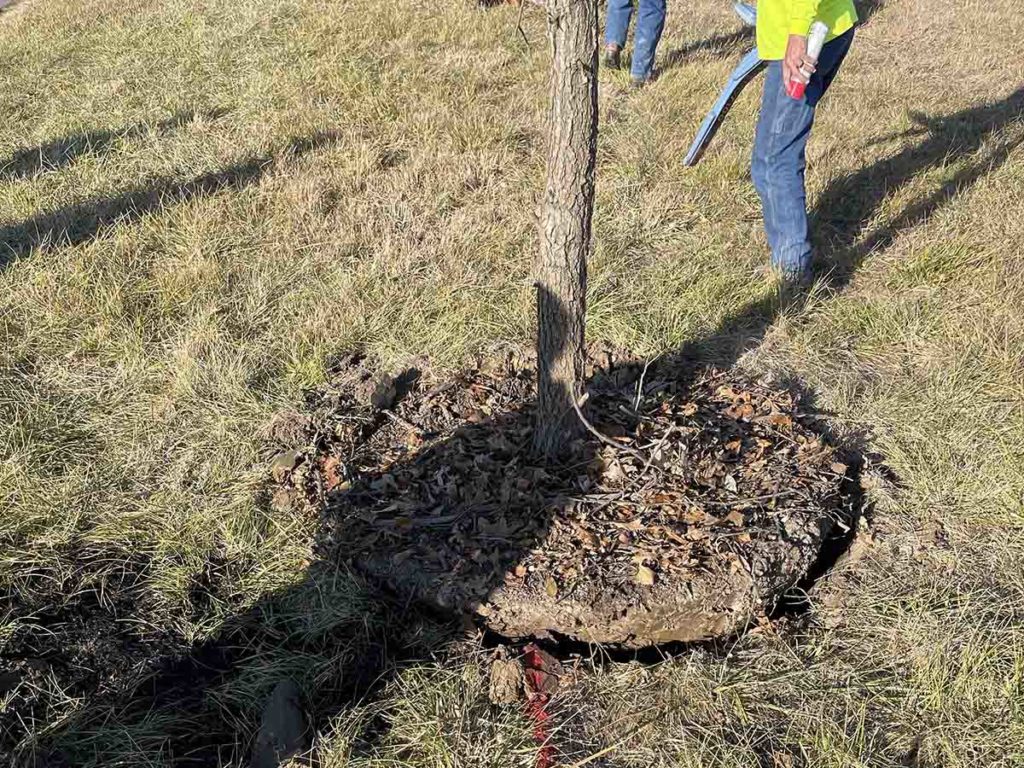
Electric cooperatives are locating more power lines, fiber networks and other utility assets underground to expand service and improve reliability, and that’s making it more important than ever for co-op consumer-members to call before they dig.
Nearly 35 million Americans will do some digging on their property this year without making a call to 811 before sticking a spade, trowel or shovel into the ground, according to the Common Ground Alliance.
CGA, an Alexandria, Virginia-based interest group, represents about 1,800 stakeholders, including some electric co-ops, other utilities, pipeline companies and local and state government agencies involved in building, operating, maintaining and regulating underground assets.
“Almost half of U.S. homeowners are putting themselves at risk of utility service interruptions and personal injury by not contacting 811 at least a few days before they dig,” said Sarah Magruder Lyle, CGA president and CEO.
About 22 million miles of pipes, wires, cables, conduits and other systems are buried across the country, and in the 15 years since 811 telephone service became a national clearinghouse for locator service calls, disruptions have fallen by about 50%. The 63 one-call centers operating in the United States field about 20 million call-before-you-dig 811 locator requests per year.
Still, damage to underground systems represents about $30 billion annually in lost productivity or service interruptions, according to CGA data.
For some co-ops, a single cable cut on a distribution feeder can knock out power to as many as 250 members, prompting an hours-long search-and-repair operation costing thousands of dollars.
Last autumn, Mount Pleasant, Iowa-based Access Energy Cooperative had a three-phase primary cable cut that served a golf course residential development. A landscaper planting a tall specimen tree was digging with a five-foot bucket spade mounted on a small tractor.
“Either when the landscaper hit the cable or when the crew tried to re-energize the circuit, the electricity tracked up the tree-spade and caused a small grass fire,” said Kurt Lowenberg, Access Energy’s safety director and assistant operations manager. “Luckily no one was touching the machine at the time, preventing an electrocution.”
Since the early 1980s, all U.S. states and territories have enacted their own 811 locator laws and regulations for digging notifications. But despite ongoing public awareness campaigns, more than 385,000 incidents involving damage or near-misses were reported in 2020.
CGA’s Damage Information Reporting Tool cites failure to notify one-call centers through 811 as the largest single root cause of incidents. Excavator field errors, abandoned subterranean assets and locator errors were also cited.
The period of April through October marks the busiest period for outdoor home improvement projects, which contribute to the bulk of the reported incidents. CGA suggests that nearly three of every five homeowners in the United States will pursue such a project this year, such as planting trees or shrubs, erecting fencing and building patios or decks.
While damage to electric lines accounted for just over 1% of the total incidents in 2020, telecommunications asset damage topped 9%. But service disruption is not the only concern linked to digging without locator clearance.
“The potential risk to people is a legitimate safety concern,” said J.D. Cox, director of safety and loss control for Northcentral Electric Cooperative.
The Olive Branch, Mississippi-based distribution co-op completed more than 20,000 811 locator tickets in 2021 and would have welcomed more had they been received, said Cox. “We’ve got lines in the ground energized at 14,400 volts, and when somebody hits one with a trencher the first thing that I ask is if everybody’s OK.”
Derrill Holly is a staff writer for NRECA.